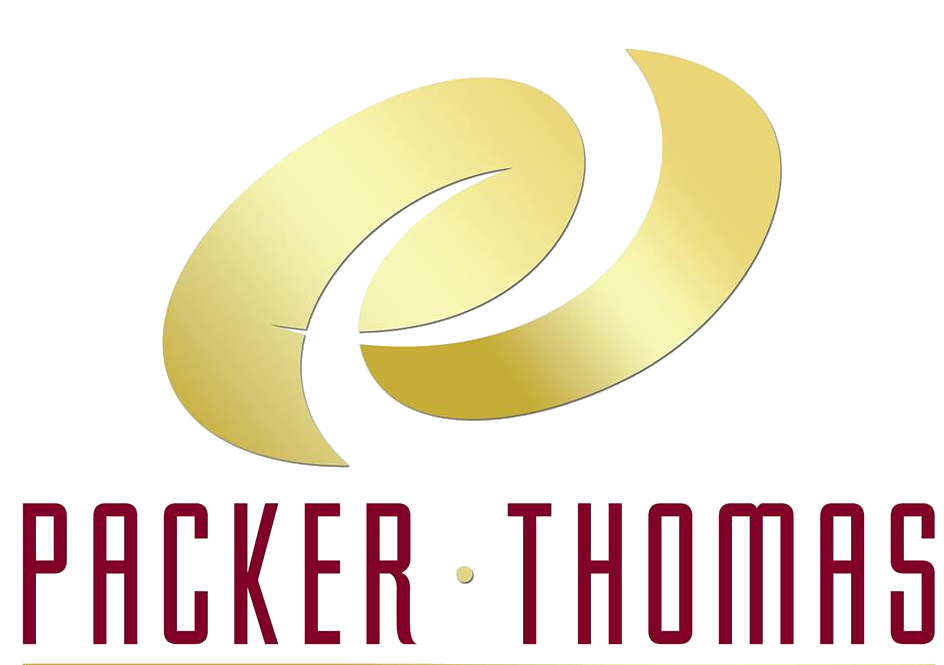As year-end approaches it is a good time to think about planning moves that may help lower your tax bill for this year and possibly next. Year-end planning for 2020 takes place during the COVID-19 pandemic, which in addition to its devastating health and mortality impact, has widely affected personal and business finances. New tax rules have been enacted to help mitigate the financial impact of the disease, some of which should be considered as part of this years’ planning. Most notable is the elimination of required retirement plan distributions and liberalized charitable deduction rules.
Major tax changes from recent years generally remain in place, including lower income tax rates, larger standard deductions, limited itemized deductions, elimination of personal exemptions, an increased child tax credit, a lessened alternative minimum tax (AMT) for individuals, a major corporate tax rate reduction, elimination of the corporate AMT, limits on interest deductions, and generous expensing and depreciation rules for businesses. Additionally, non-corporate taxpayers with certain income from pass-through entities may still be entitled to a valuable deduction.
Despite the lack of major year-over-year tax changes, the time-tested approach of deferring income and accelerating deductions to minimize taxes still works for many taxpayers; however, the impact of the pandemic has given the potential to many business owners to turn their planning on its feet.
We have compiled a list of actions based on current tax rules that may help you save tax dollars if you act before year-end. Not all actions will apply to your specific situation, but you (or a family member) will likely benefit from many of them. We can narrow down the specific actions that you can take once we meet with you to tailor a particular plan. In the meantime, please review the following information and contact us at your earliest convenience so that we can advise you of your options regarding which tax-saving moves to make.
Year-End Tax-Planning Concepts for Businesses
Taxpayers other than corporations may be entitled to a deduction of up to 20% of their qualified business income. For 2020, if taxable income exceeds $326,600 for a married couple filing jointly, or $163,300 for other filing types, the deduction may be limited based on whether the taxpayer is engaged in a service-type trade or business, the amount of W-2 wages paid by the trade or business, and/or the unadjusted basis of qualified property held by the trade or business.
More small businesses have been able to use the cash (as opposed to accrual) method of accounting than in previous years. To qualify as a small business, a taxpayer must, among other things, satisfy a gross receipts test. For 2020, the gross-receipts test is satisfied if, during a three-year testing period, average annual gross receipts do not exceed $26 million. Cash method taxpayers may find it easier to manage the timing of income and expenses.
Businesses should consider making expenditures that qualify for the liberalized business property expensing option (Section 179). For tax years beginning in 2020, the expensing limit is $1,040,000, and the investment ceiling limit is $2,590,000. Expensing is generally available for most depreciable property (other than buildings). It is also available for qualified improvement property, for roofs, and for HVAC, fire protection, alarm, and security systems. This has long-been utilized as a potent tool for year-end tax planning, as property acquired and placed in service in the last days of 2020, rather than at the beginning of 2021, can result in a full expensing deduction for 2020.
Alternatively, businesses can claim a first year 100% bonus depreciation deduction for machinery and equipment bought used (with some exceptions), or new if purchased and placed in service this year, and for qualified improvement property. Bonus depreciation does not carry an investment ceiling or expense limit.
Year-End Tax Planning Ideas for Individuals
Higher-income earners must be wary of the 3.8% surtax on certain unearned income. The surtax is 3.8% of the lesser of: (1) net investment income (NII), or (2) the excess of modified adjusted gross income (MAGI) over a threshold amount ($250,000 for joint filers or surviving spouses, $125,000 for a married individual filing a separate return, and $200,000 in any other case). As year-end nears, a taxpayer’s approach to minimizing or eliminating the 3.8% surtax will depend on their estimated MAGI and NII for the year. Some taxpayers should consider ways to minimize (e.g., through deferral) additional NII for the balance of the year; others should try to reduce MAGI other than NII, and still other individuals will need to consider ways to minimize both NII and other types of MAGI.
Long-term capital gain from sales of assets held for over one year is taxed at 0%, 15% or 20%, depending on the taxpayer’s taxable income. If you hold long-term appreciated-in-value assets, consider selling enough of them to generate long-term capital gains that can be sheltered by the 0% rate. The 0% rate generally applies to the excess of long-term capital gain over any short-term capital loss to the extent that, when added to regular taxable income, it is not more than the maximum zero rate amount (e.g., $80,000 for a married couple). Additionally, if you expect to have the 0% rate bracket apply to long-term capital gains you took earlier this year, then additional capital loss harvesting may not yield a benefit this year.
Consider postponing income until 2021 and accelerate deductions into 2020 if doing so will enable you to claim larger deductions, credits, and other tax breaks for 2020 that are phased out over varying levels of adjusted gross income (AGI). These include deductible IRA contributions, child tax credits, higher education tax credits, and deductions for student loan interest. Postponing income also is desirable for taxpayers who anticipate being in a lower tax bracket next year due to changed financial circumstances. Note, however, that in some cases (when you expect your tax situation to change in a subsequent year), it may be beneficial to accelerate income into the earlier year.
You may also consider converting traditional-IRA money invested in any underperforming stocks into a Roth IRA in 2020 if eligible to do so. Keep in mind, however, that such a conversion will increase your AGI for 2020, and possibly reduce tax breaks based on AGI.
Many taxpayers are now unable to itemize because of the higher basic standard deduction amounts that apply. For 2020 the standard deduction is $24,800 for joint filers, $12,400 for singles and for marrieds filing separately, and $18,650 for heads of household. Like last year, no more than $10,000 of state and local taxes may be deducted. Miscellaneous itemized deductions (e.g., tax preparation fees and unreimbursed employee expenses) are not deductible, and personal casualty and theft losses are deductible only if they are attributable to a federally declared disaster and are subject to further limitations. You can still itemize medical expenses, but only to the extent that they exceed 7.5% of your adjusted gross income, your charitable contributions, plus interest deductions on a restricted amount of qualifying residence debt, but payments of those items won’t save taxes if they don’t cumulatively exceed the standard deduction for your filing status. Two COVID-related changes for 2020 may be relevant here: (1) Individuals may claim a $300 above-the-line deduction for cash-charitable contributions on top of their standard deduction, and (2) the percentage limit on charitable contributions has been raised from 60% of modified adjusted gross income (MAGI) to 100%.
Required minimum distributions (RMDs) that usually must be taken from an IRA or 401(k) plan (or other employer-sponsored retirement plan) have been waived for 2020. Thus, if you don’t have a financial need to take a distribution in 2020, you don’t have to. Also, under the SECURE Act, plan participants who turn 70½ in 2020 or later need not take required distributions for any year before the year in which they reach age 72.
Rules related to the qualified distributions from 529 education savings plans have been expanded to include expenses related to costs of apprenticeships; up to $10,000 in distributions are allowable for repayment of principal and interest on a qualified education loan.
Consider increasing the amount you set aside for next year in your employer’s health flexible spending account (FSA) if you set aside too little for this year and anticipate similar medical costs next year. Also, if you just became eligible to make health savings account (HSA) contributions, you can make a full year’s worth of deductible HSA contributions for 2020.
Make gifts sheltered by the annual gift tax exclusion before the end of the year if doing so may save gift and estate taxes. The exclusion applies to gifts of up to $15,000 made in 2020 to each of an unlimited number of individuals. You cannot carry over unused annual exclusions from one year to the next. Additionally, the lifetime gift tax exemption is $11.58 million. Such transfers may also save family income taxes where income-earning property is given to family members in lower income tax brackets who are not subject to the kiddie tax.
Another final tip to reducing 2020 taxable income is to consider deferring a debt-cancellation event until 2021, or you may consider disposing of a passive activity in 2020 if doing so will allow you to deduct suspended passive activity losses.
There has been a lot of correspondence as it relates to the pages of legislation surrounding the current pandemic, including necessity questionnaires (for loans over $2M) and IRS regulations contradicting Congressional intent (such as the current non-deductibility of expenses). We have continued to work with many businesses as it relates to the numerous provisions of the CARES Act Paycheck Protection Program loans, and will continue to be available to discuss the calculation of forgiveness and what effect that may have on your income tax situation.
In addition, the results of the recent elections will affect future tax policy. While uncertainty may exist, we would be happy to discuss the most recent proposals that have come from both the legislative and executive branches, and what those policies would mean to your individual tax situation.
Again, these are just some of the year-end steps that can be taken to save taxes. The rules are quite complex, so do not make abrupt moves without consulting your tax adviser. By contacting us at 330-533-9777, we can tailor a particular plan that will work best for you. We wish all of you the very best in a difficult time.






